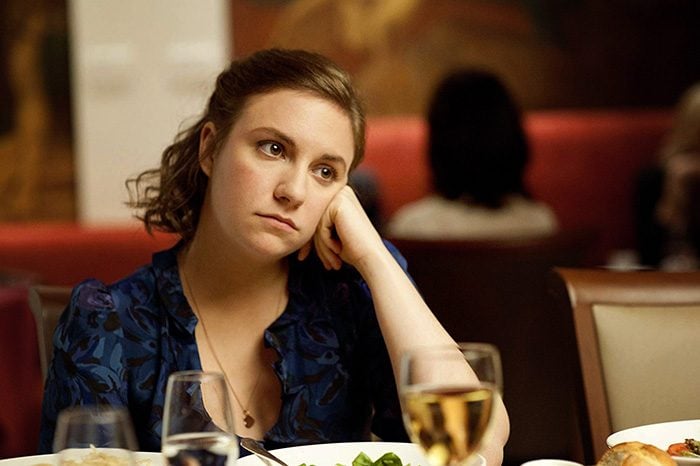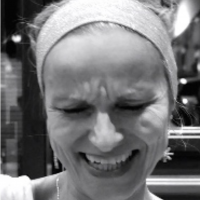Are you someone who stands out wherever you go?
You know you have something special to offer, yet the minute you cross the threshold of your parents’ home, you suffer from feeling inadequate, small, and strangely guilty?
Do you feel the pressure of having to prove yourself to your family, justifying who you are and what you do—yet never really succeeding in getting the wholehearted approval you have been yearning for as long as you can remember?
In your grown-up environment, are you familiar with being told how amazingly gifted you are, how special, how wise beyond your age—yet wish your parents and siblings could witness that?
If you have been nodding in agreement all the way to this point, I guess you too are one of us—a black sheep. Sounds terrible, I agree. But only at a first glance.
Let’s take it a level deeper and your view might start to change.
Black sheep stand out in a herd of whites; in this case white is the norm, black is the rare exception.
The black sheep challenges their position within the family: either liked for being special, or disliked as an irritation. Black sheep force us to stop and look, demanding attention simply by being who they are. They make us aware that living the norm is not our only option, and they force us to question our white-only horizon.
Here is a summary of classic black sheep experiences that I have observed.
Please remember: categorization is meant to increase understanding and tends to simplify. It can never do justice to the richness of personal experience; certain things may apply to you, while others you might find missing.
“I see them—but they don’t see me”
This is a common experience of a black sheep child. They are observers; they observe not only with their eyes but also with their hearts. Looking deeply, they can distinguish nuances on multiple levels. While being so aware of people around them, black sheep seldom feel recognized or understood themselves. It’s a lonely place to be, but also a place of responsibility and power.
High sensibility
Not every highly sensitive person is a black sheep, but high sensibility is a rather common trait among black sheep people. They seemingly have an additional antenna that makes them perceptive of their environment—attuned to details others are not even aware of. This also gives them additional information they need to process and integrate, a challenging task especially if they are expected to “function” just like everybody else.
Highly sensitive people also need additional space and time to process and integrate, otherwise they can become irritable, confused, and overwhelmed with the load of information flooding in.
Parents of highly sensitive children need to understand and support the difference in how their child processes information. Otherwise they can become quite difficult and demanding—monopolizing the family’s attention and manipulating those close to them. High sensibility is a gift that has its price.
Carriers of childhood memories
Black sheep are often the main carriers of childhood memories. They are often able to tell endless stories, usually in detail about what happened—while other family members shake their heads, not being able to recall the specifics, or the event at all. That’s the black sheep. They do remember.
Irritating the system
Their mere existence seems to cause unrest in a family.
Their approach to life and their uncompromising way of sharing often challenges the whole system and questions the kinfolk’s way of living. They seem to stumble right into any family taboo there is, and they are poorly equipped to live by the rules passed on from generation to generation. Rather than looking for trouble, they are trying to be who they think they are—they just look at life from a different angle.
Their need to express themselves has something existential: they are yearning to be seen, recognized, and to finally get a sense of belonging. But somehow it seems that the more they show of their true nature, the harder it gets.
Source of Envy
Black Sheep are often very gifted people. They are also courageous and extraordinary. Sooner or later, they will meet people who recognize and acknowledge this core which will help them to appreciate who they are. The moment their sense of guilt and shame about themselves is replaced by gratitude and self-respect, they can achieve great things.
Interestingly, more often than not, their role as a black sheep within their family persists. No matter how impressive their success, any appreciation from parents and siblings will be scarce—if any at all. They might follow via Facebook or Twitter, but apart from the occasional “like” there won’t be much of a response.
At family gatherings the talk will likely be about the black sheep’s childhood mishaps than about the recently received award. If they comment on the black sheep’s present career at all, it’s often in an indifferent or even skeptical way.
The old pain of not being good enough, of feeling odd, or not really belonging flares up—and so it is that the successful musician turns into the black sheep the moment they cross the parental threshold. This structure is harsh—the black sheep is kept where they belong.
But, strangely, in times of real crisis, the black sheep is the family member they will go to, confide in, and ask advice from—but only one-on-one, and nobody must know.
Catalysts for growth
If the family system is flexible enough, over time the black sheep will be embraced and even appreciated. Once the black sheep is fully integrated in the family they will turn into a real asset—just like the kiss that turns the frog into a prince. The family as a whole will be enriched, healed, and transformed.
Black sheep too play a crucial role in a healthy family development. Unfortunately, hurt and hardened over the years, black sheep tend to display a lack of understanding for the needs of others and sometimes an arrogant “know-it-all” kind of stance. This makes it extremely difficult for others to reach out and open up to them. Humility and the capacity to self-reflect will be a decisive factor here, as everybody will have to face up to the injustice and pain that has happened on all sides.
Having said that, if the family resists the black sheep’s need for change, the whole system will grow stiffer—intensifying bitterness, pain, and separation.
Burden bearers
As long as the rest of the family remains in denial, black sheep will be the burden bearers in the family. If the black sheep is the only one who sees what is dysfunctional, they also become the only one who deals with it. The one who sees it carries it.
Unfortunately, quite a number of families fall victim to the temptation of simply turning the black sheep into a scapegoat. By isolating the troublemaker they think they will have peace, or so the logic goes. Usually the outcome is disastrous—adding guilt and pain to an already ailing structure.
However, the more the family system is open to changing, the more each member will be willing to see. The more they see, the more they will carry their own burdens. The more they carry their own burdens, the more they will be able to embrace their black sheep.
Proneness to psychosomatic conditions
Due to the tense situation within their family, coupled with their high sensitivity, black sheep kids are prone to developing psychological problems, including anxiety, depression, self-esteem issues, a tendency to self-harm, or addictive behavior.
There are many ways the ongoing conflict might manifest through the black sheep’s soul. They often need special attention and can be exhausting for their caretakers when they aren’t understood.
It is this journey of pain and suffering that can also become the actual catalyst for the family to change and grow—hopefully finding a way to accept all the shades of grey (and white) in the black sheep’s fur.
Dear fellow black sheep,
Feeling like the misfit among those closest to you is a painful fate indeed. Maybe you believe that nobody wants you, difficult as you are; maybe you don’t even like yourself at this point.
The struggle may have turned you into a troublesome, rebelling, possibly even self-sabotaging person with endless needs, and apparently little to give.
Senseless suffering is the worst kind of suffering. The beautiful gifts of growth and healing that you carry for your loved ones, as much as for your own self, are substantial. This is why you are supposed to be exactly the way you are.
Deeply understanding your unique way of seeing the world will have an immediate impact on the high demands you have on yourself and others. Dare to claim that you are okay!
I would like to finish with this brilliant, much-cited quote from Marianne Williamson. With only a few words, she unveils the amazing truth of the black sheep’s true nature, challenges, and the way out of the lie.
“Our deepest fear is not that we are inadequate. Our deepest fear is that we are powerful beyond measure. It is our light, not our darkness that most frightens us. We ask ourselves, Who am I to be brilliant, gorgeous, talented, fabulous? Actually, who are you not to be? You are a child of God. Your playing small does not serve the world. There is nothing enlightened about shrinking so that other people won’t feel insecure around you. We are all meant to shine, as children do. We were born to make manifest the glory of God that is within us. It’s not just in some of us; it’s in everyone. And as we let our own light shine, we unconsciously give other people permission to do the same. As we are liberated from our own fear, our presence automatically liberates others.”
Live your life—just live it!
Wholeheartedly,
B.S.







Read 6 comments and reply